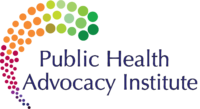CNN Reports on PHAI Lawsuit Against Abbott Labs Over Toddler Milk Marketing
CNN has reported on our class-action suit against Abbott’s marketing of their “toddler milks.” These drinks are heavily promoted as a natural “next step” after infant formula—but they are not FDA-regulated and contain added sugars that pediatric experts warn against. Our Litigation Director, Andrew Rainer–who is also the lead attorney on the case–commented to CNN […]
CNN Reports on PHAI Lawsuit Against Abbott Labs Over Toddler Milk Marketing Read More »
